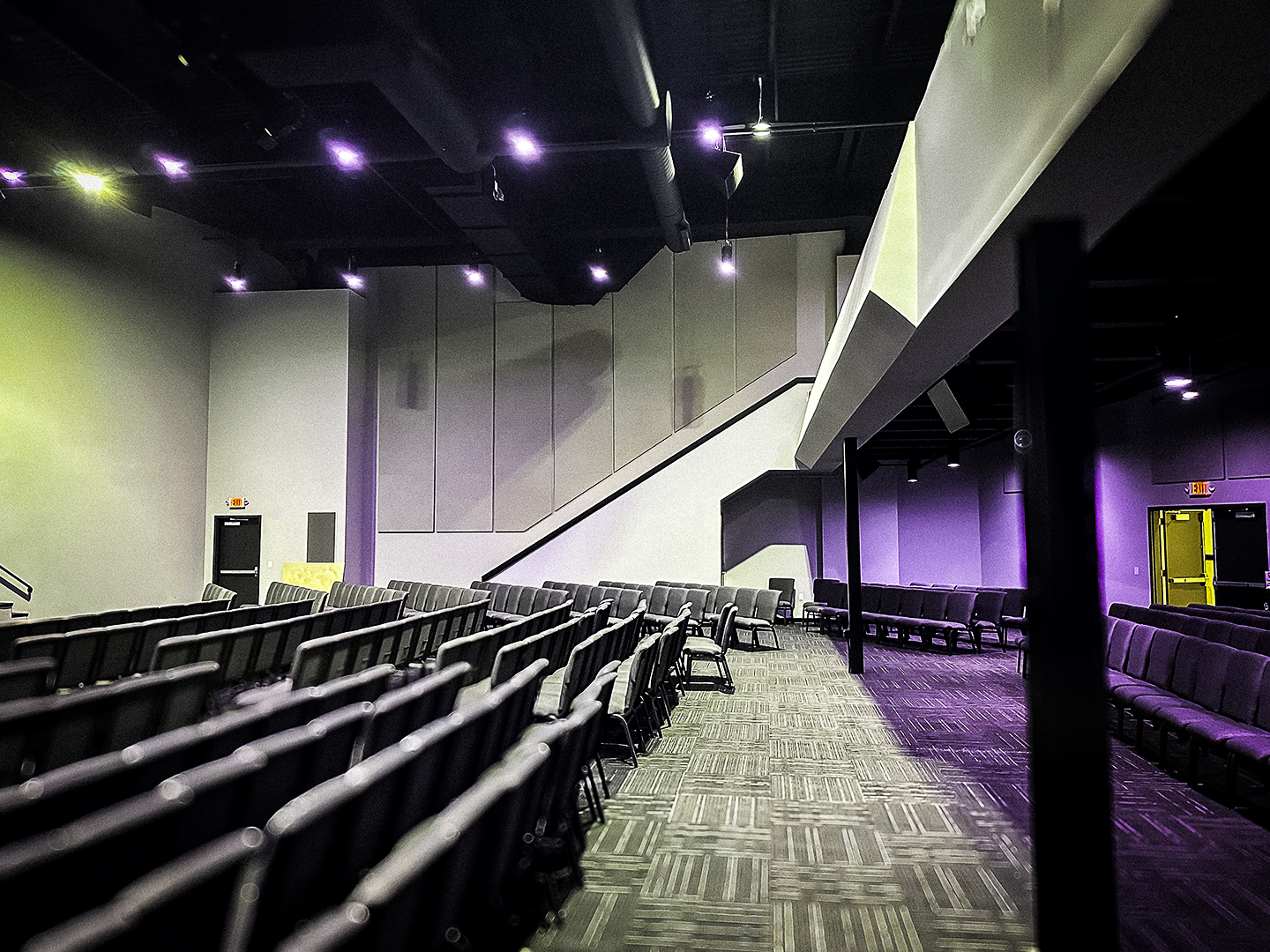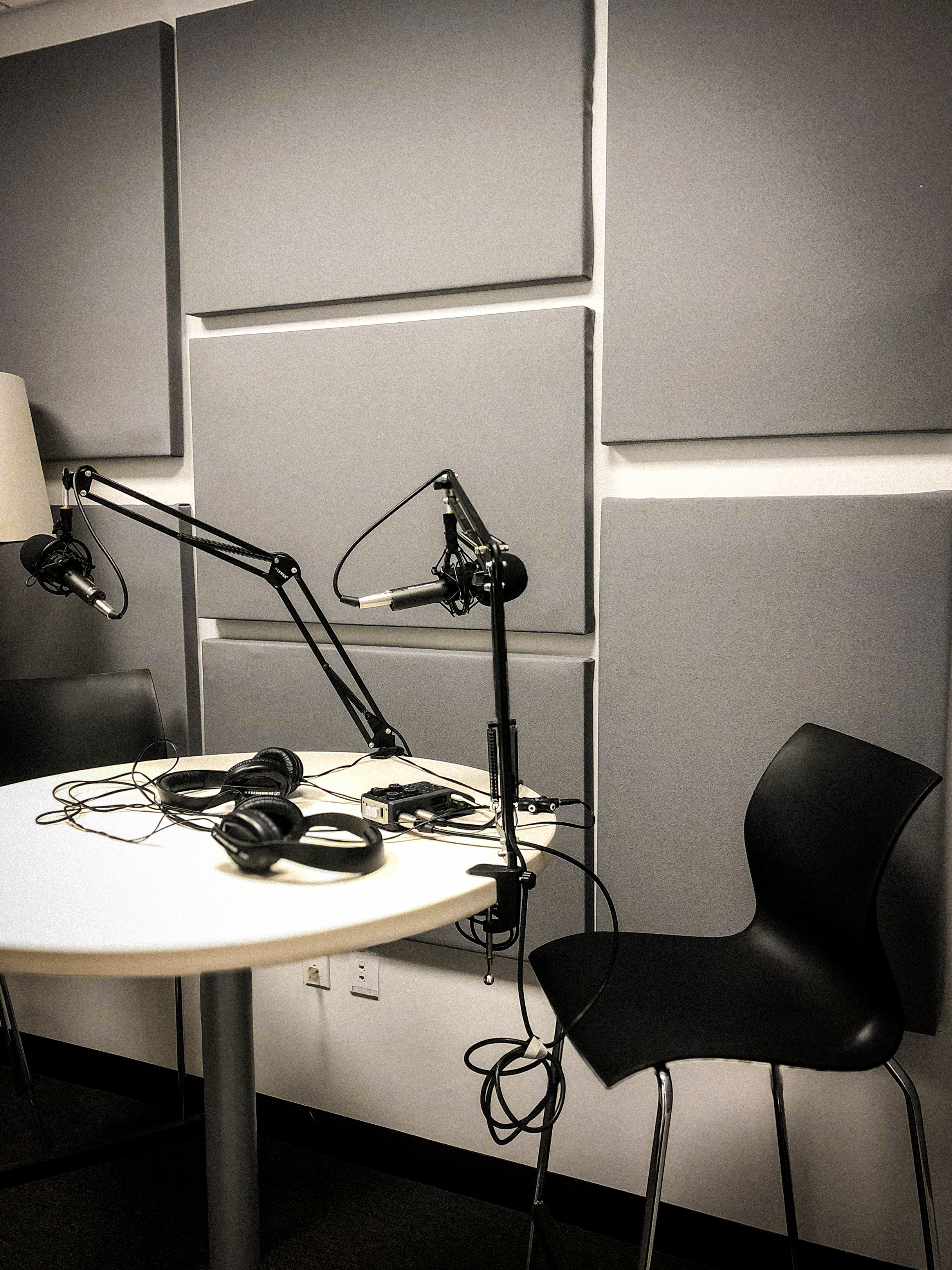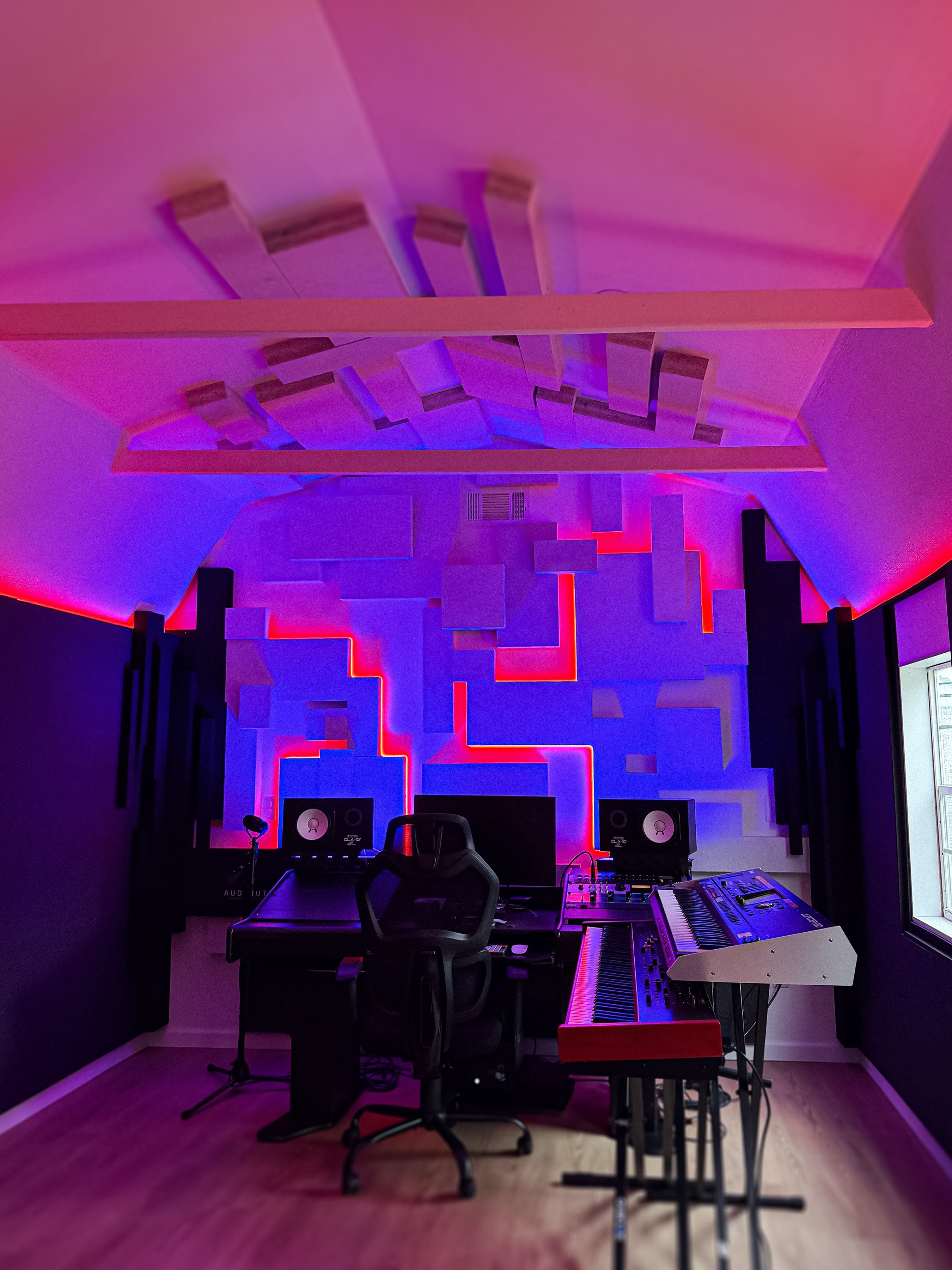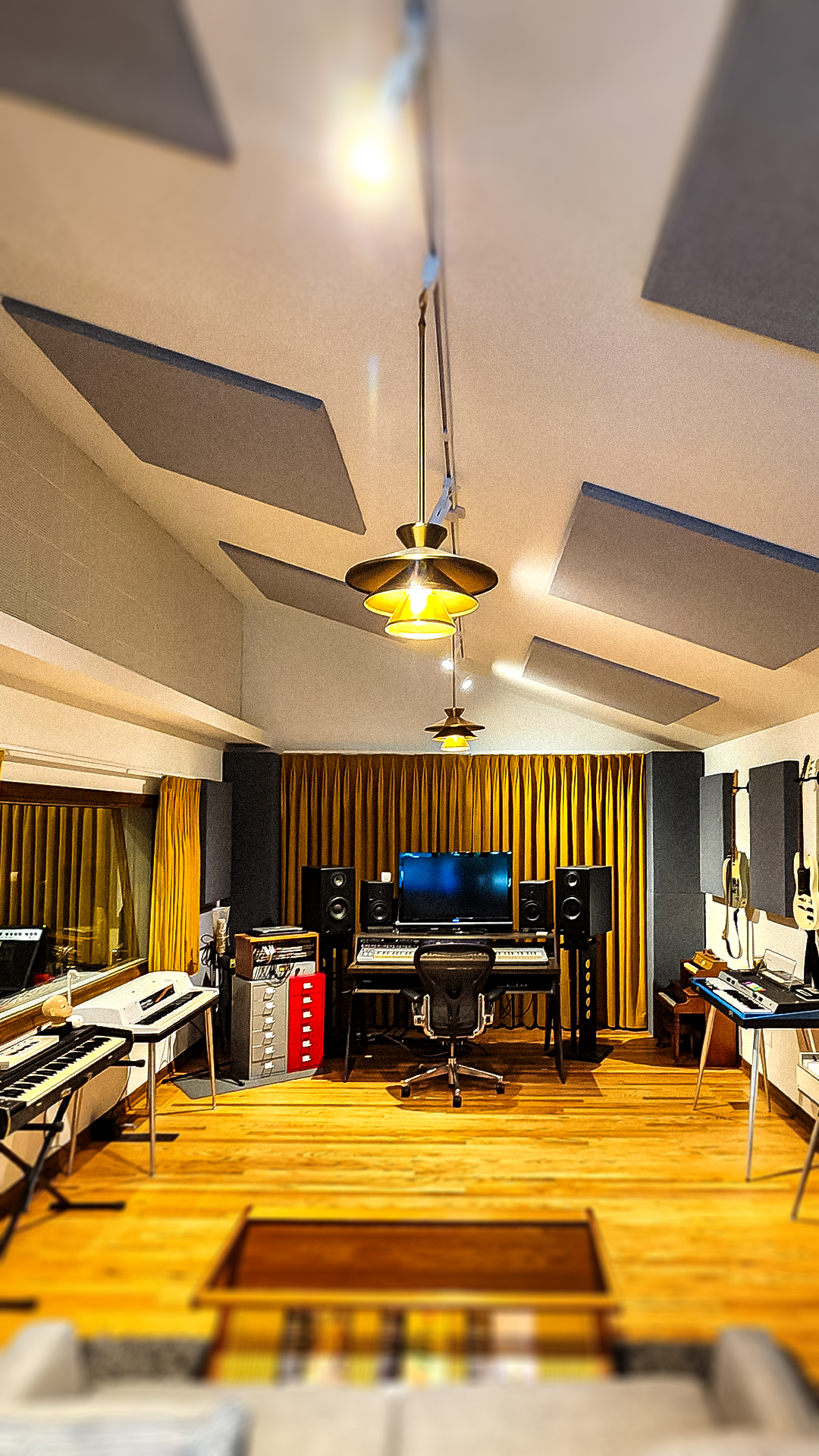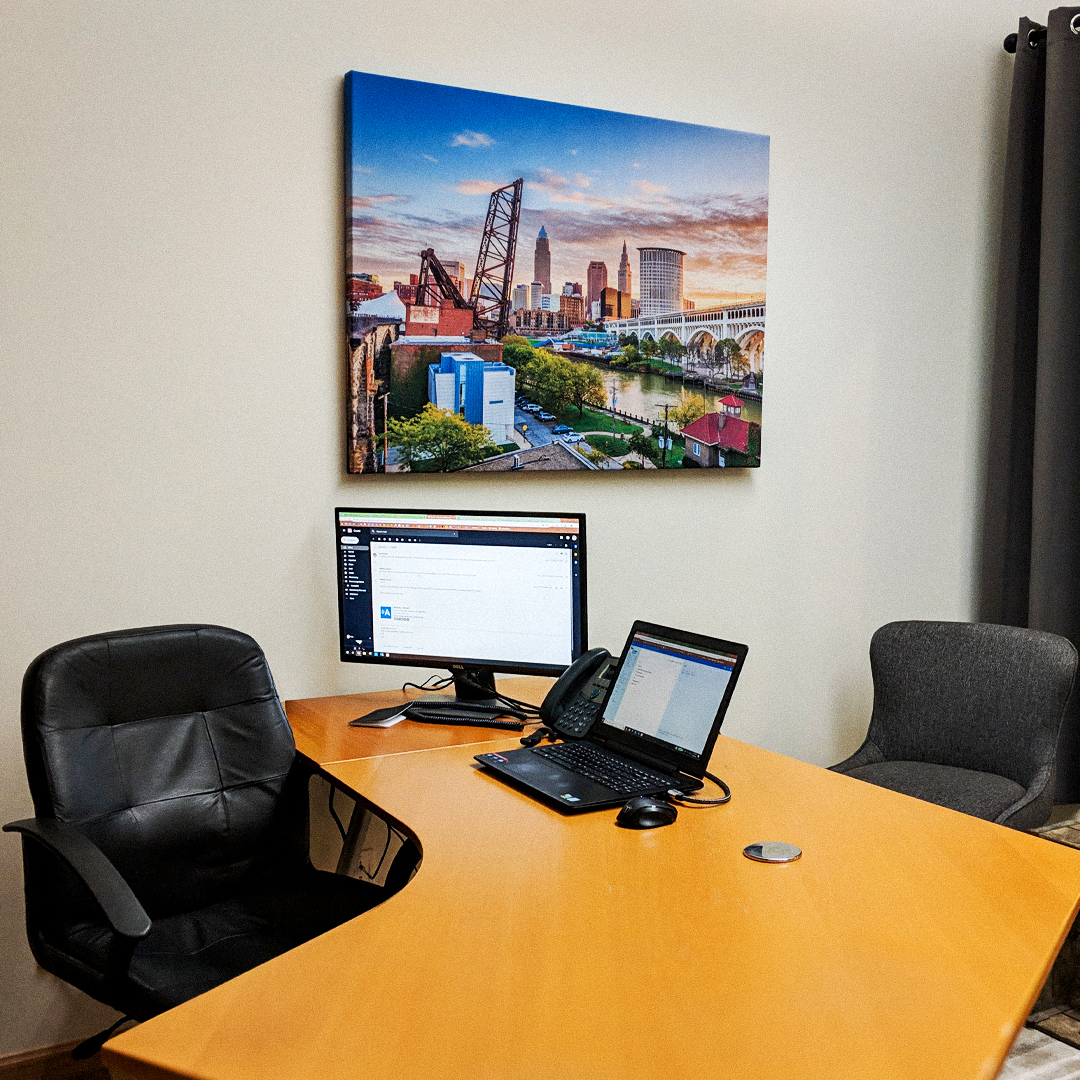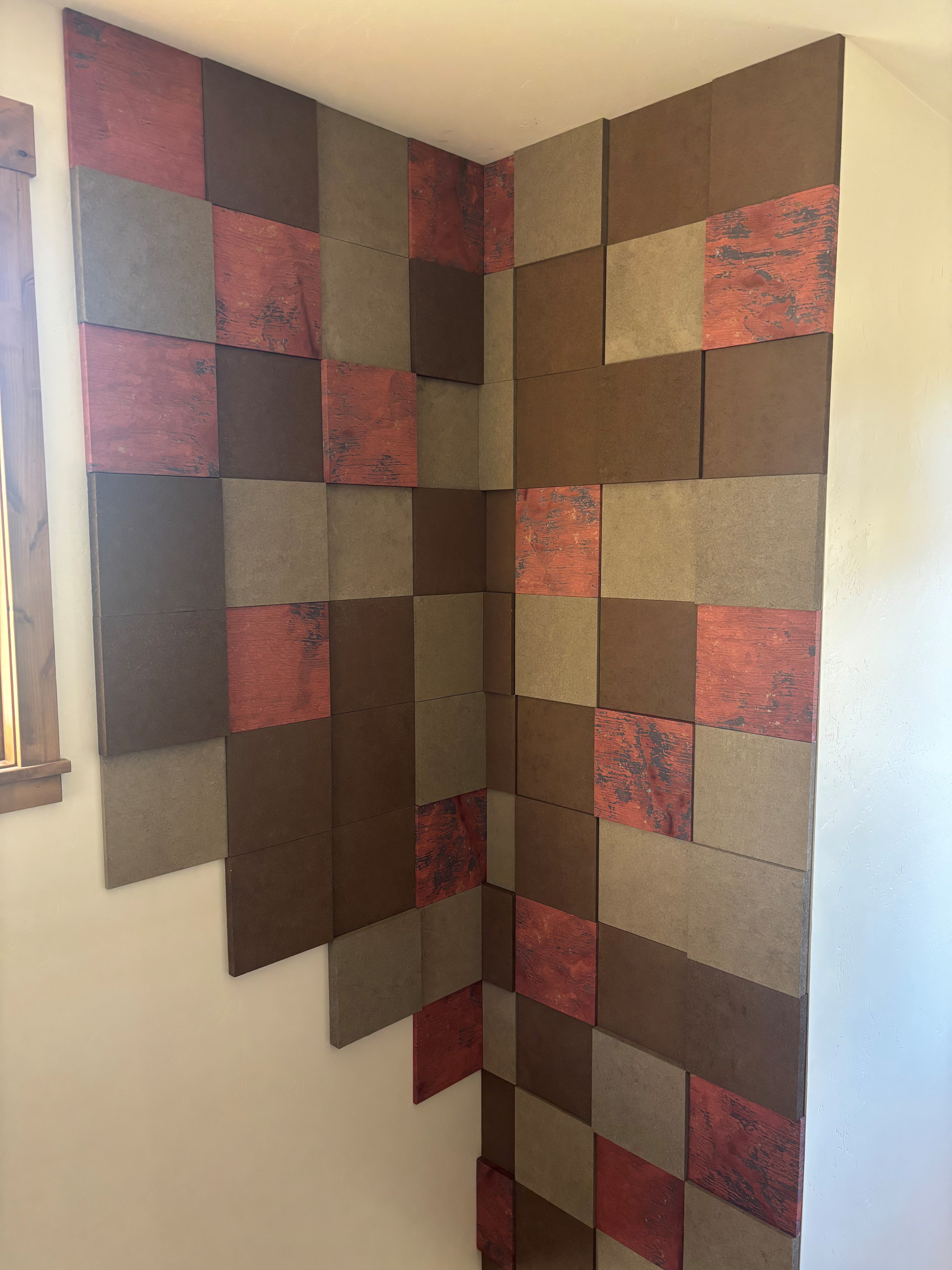To Treat or Not to Treat?
- Jul 28, 2025
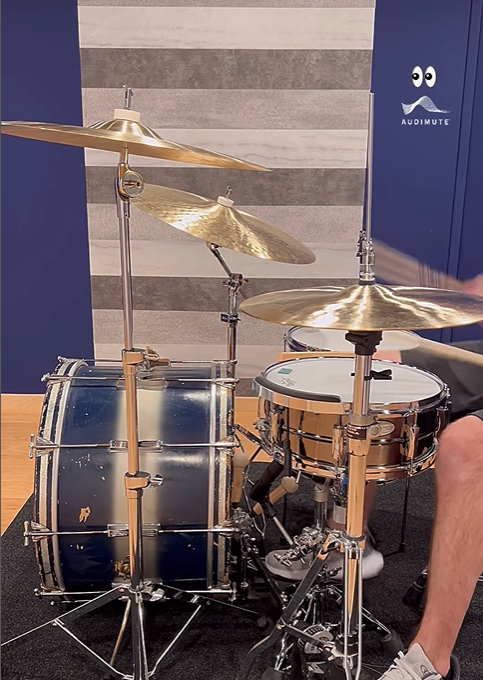
At Audimute, we've been lucky to work with some of the top drummers in the music industry, and we've been even luckier that those drummers have shared the results of their Audimute acoustic solutions with their legions of followers on social media platforms like Instagram.
Recently, one of our drummer friends, Gabriel Staznik, showed his 90,000+ followers "Before Audimute" and "After Audimute" footage of him drumming in his drum room. In the "Before" footage, the boom of the floor tom bounced around the space while the crack of the snare was nearly lost in the reverberations from the rest of the drum kit.
The "After" footage, on the other hand, revealed an acoustically treated room courtesy of such Audimute solutions as our Planks Acoustic Panels Kit and AcoustiColor® Planks and Panels. In this footage, the sound was crisper. The drums were cleaner. It was a significant acoustic difference, and Gabriel was excited it to share with his followers.
Among the several comments on the post were a couple different ones that mentioned they liked the sound of the untreated room — the "before" — better.
And you know what? They weren't wrong.
'Wait a minute! How can you say that?' you might ask. "You're an acoustic solutions company, and you treated his drum room! Shouldn't those comments about liking the untreated sound make you upset?"
No.
Just like those commenters, we might ultimately prefer the "raw, untreated" sound of booming, echo-y drums, BUT we want it to be an intentional choice by the musician. In an untreated room, there's no choice: you're always going to get echo.
With an Audimute treatment, Gabriel is in control of the sound in his drum studio instead of the other way around. He now enjoys a crisp, clear sound in the room; if he wants to add reverb or effects after the fact, he can, as opposed to the more difficult task of cutting out the reverb post-recording if he doesn't want it.
There's nothing wrong with echo and reverb on a recording, of course. Many legendary artists, from the Beach Boys to Frank Sinatra to the Supremes to the Beatles, recorded vocals or instruments in specific rooms or studios with lots of echo to capture that special reverb-y sound. It all depends on the outcome you're going for.
Gabriel said it best in the comments on his post: "If you want raw, lively energy for a big, open drum sound, untreated rooms can be magic. [...] But if you need clarity, control, and mix-ready recordings, treatment makes all the difference."



